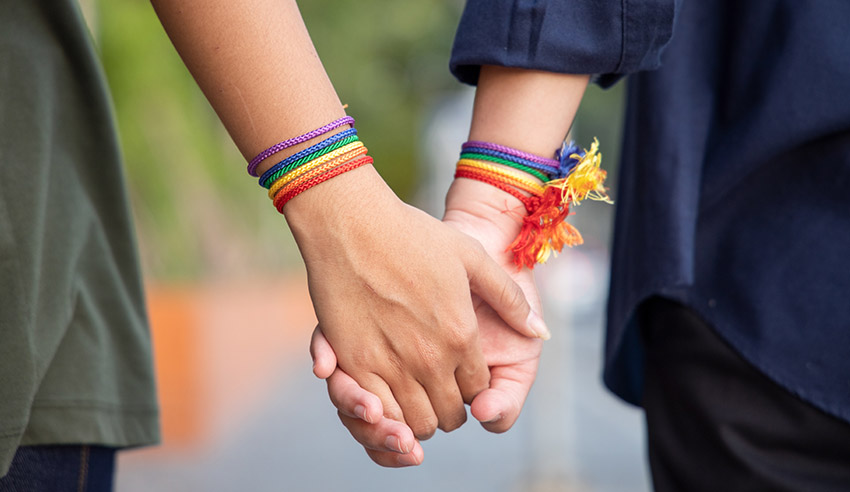It is really important that law firms are committed to promoting equality in its offices for both its staff and clients, but it means going beyond having non-discriminatory policies.

In the last three years since same-sex marriage was legalised, firms have transformed, fine-tuned and committed their offices to promoting LGBTQI+ rights and while they are to be commended for non-discriminatory policies and a change in their hiring practices, there is much more to be considered when it comes to making everyone feel welcome.
“Equality isn’t a new, fangled value of the law, it’s one of the originals. It’s a foundation of it,” Mr Brady said. “We’re not neutral observers of the law as legal practitioners, we are the guardians and custodians of it. If we’re not going to talk about it, then who is?”
Mr Brady said firms need to understand that “not discriminating is not enough”. People that are coming into the practice are from the “real world”, which has often taught them that it will not always be a positive experience. Mr Brady said if firms aren’t using their office to publicly demonstrate it will be positive, they will assume it will not be.
“Not demonstrating means you’re moving the dial for the people walking into your firm,” Mr Brady said. “You can transform the messaging you want to show and demonstrate your commitment in quite a few, small simple steps. There are some organisations out there that can help, but you need to demonstrate your commitment or people will then presume that your place will be like everything else they have experienced.”
Mirroring this was fellow panellist Georgia Burke, a family lawyer and a co-chair of the LGBTQI+ rights for Australian Lawyers for Human Rights. Ms Burke urged firms and in-house groups to “keep the conversation really open” about how the profession might make the space better and more inclusive for its lawyers and clients.
Ms Burke said it’s important to consider what small, simple things can be changed from the office, such as considering whether client intake forms are inclusive. Can someone include their pronouns or their preferred names in a way that is respectful for them and in a way that makes sure the practitioner knows how best to address them?
“Always keep an eye on what can be improved. It’s about putting yourself in someone else’s shoes and thinking, ‘if I came into this space, would I feel welcome?’. Part of the change is acknowledging the complex relationship that the LGBTQI+ community has with the law and with the legal profession,” Ms Burke said to the webcast.
“It can be really easy to sit in a nice office and think that anyone would be comfortable to walk through your doors, but of course there have been times when the community has had great difficulties with police and with criminal law, so we have to know the history and hurt of it. While things are improving, it doesn’t mean people aren’t carrying that with them.”
Lawyers Weekly has launched a survey to find out how supportive law firms and legal practitioners are of the LGBTQI+ community and we would like to hear from you. Take our survey today and tell us your thoughts, good or bad.
